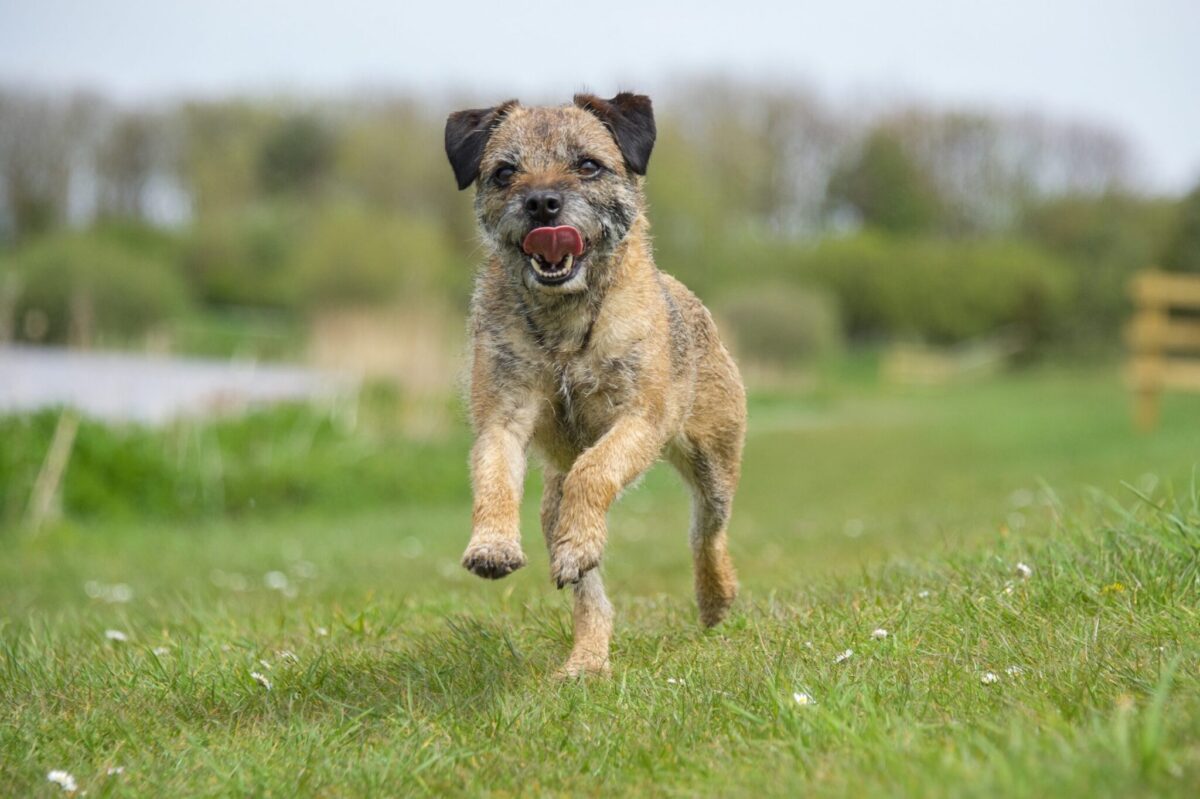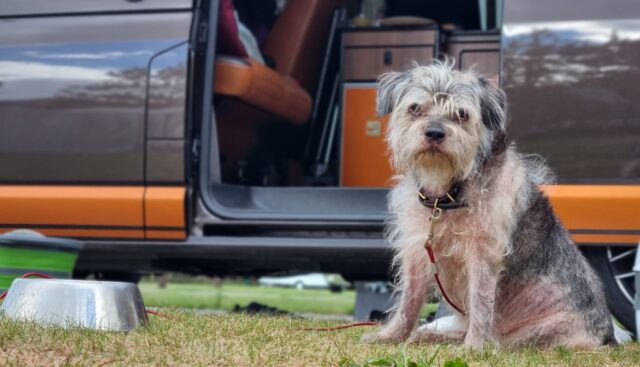Border Terrier
No products found which match your selection.
Shelter Dog Meal Donation Count:
No products found which match your selection.
Initially bred for fox hunting, the Border Terrier is a small, hardy terrier with a distinctive otter-shaped head. They are well-regarded for their adaptability, friendly nature, and suitability as family pets.
Developed in the border counties of England and Scotland, Border Terriers were bred to assist in fox hunts, able to keep up with horses and navigate through narrow passages.

Their history dates back to the 18th century, where they were prized for their toughness, endurance, and ability to hunt foxes and other small game.




Generally healthy, but can be prone to hip dysplasia, heart defects, and seizures. Regular health check-ups and screenings for genetic conditions are recommended.
Their wiry coat requires regular grooming and hand-stripping a few times a year. Regular brushing, occasional bathing, and nail trimming are necessary.
Daily exercise is essential, including walks, play sessions, and opportunities for free play in a secure area. They enjoy activities that stimulate their mind and body.
Early socialization and basic obedience training are important. They respond well to positive reinforcement training methods.
A well-balanced diet suitable for a small, active breed. Portion control and regular feeding schedules are important to prevent obesity.
Caring for a Border Terrier requires a commitment to their exercise, grooming, and health needs. They thrive in environments where they can be part of the family and have space to explore. With proper care, Border Terriers make lively, affectionate, and engaging companions.
The Border Terrier, known for its robustness and vitality, is generally healthy. However, like all dog breeds, they are predisposed to certain health conditions. Awareness of these conditions and conducting recommended tests can help maintain their health.
Regular veterinary check-ups are essential to catch any health issues early, and prompt attention to changes in your dog's behavior or appearance is key. With proper care and attention to health, Border Terriers can lead happy, healthy lives as beloved family pets.
The iHeartDogs Free Rx Discount Card Program is a pet prescription discount card that can help you save money on your furry friend’s medications. The card is free to sign up for, and you can use it at participating pharmacies nationwide. To use the free program, simply show the card to your pharmacist when you pick up your pet’s prescription. The pharmacist will then scan the card, and you will receive a discount on the price of the medication.LEARN MORE
Caring for a Border Terrier involves various annual expenses, which can vary depending on your location, the individual dog’s needs, and the level of care you choose to provide. Here’s a general breakdown of the annual costs for a Border Terrier:
Total Estimated Annual Cost:
$2350 - $5700
It's important to note that these figures are estimates and can vary. Also, the first year of owning a dog can be more expensive due to one-time costs like spaying/neutering, initial vaccinations, and training. Regular budgeting for your dog's needs and an emergency fund for unforeseen costs are essential for responsible pet ownership.
We rely on ads to keep creating quality content for you to enjoy for free.
Please support our site by disabling your ad blocker.
Continue without supporting us
If the prompt is still appearing, please disable any tools or services you are using that block internet ads (e.g. DNS Servers).